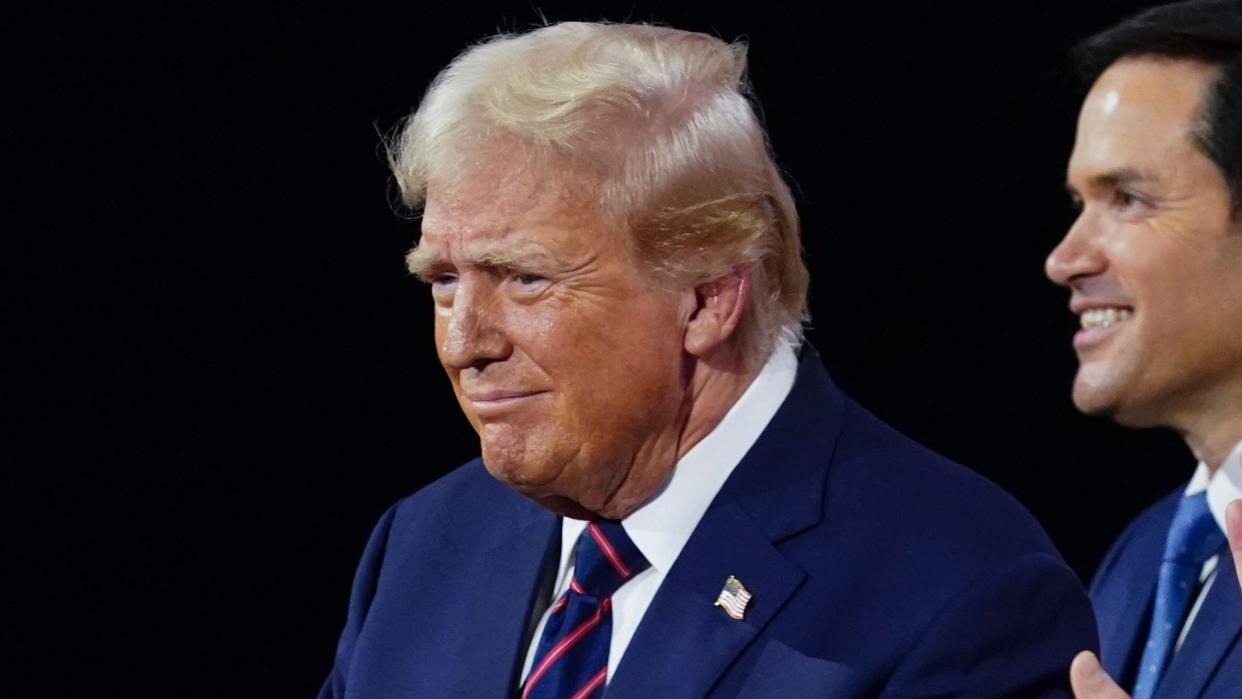The Rich Are Adjusting Their Estate Plans Before the 2024 Election — Should You?

As the U.S. inches toward a pivotal, albeit tumultuous, election, Americans of all socioeconomic backgrounds are assessing which presidential candidate will have their best financial interests at heart. However, there is some more movement among the rich where estate planning is concerned in anticipation of potential changes in tax and financial policies.
Learn More: I’m an Economist — Here’s My Prediction for Social Security If Trump Wins the 2024 Election
Check Out: 9 Things You Must Do To Grow Your Wealth in 2024
With Vice President Kamala Harris and former President Donald Trump at the forefront of the election, there’s growing anxiety that the outcome could drastically alter estate taxes, capital gains and wealth transfer regulations, especially when it comes to minimizing estate taxes.
Now, the wealthy are determined to get their estate planning attorney on the horn to put plans into motion that would protect their fortunes from higher estate or inheritance taxes well ahead of the election outcome.
See other things the wealthy do with their money that you should consider as well.
Harris vs. Trump: Estate Plan Considerations
The contents of your estate planning documents are a legitimate concern when it comes to assets such as real estate and retirement accounts potentially being affected if the 2017 tax cuts expire as scheduled after 2025. The policy of the presidential election winner is at play when it comes to voter indecision, especially for those in the baby boomer generation. According to the Urban-Brookings Tax Policy Center:
“The Tax Cuts and Jobs Act (TCJA) of 2017 included significant changes to the tax code. Many of these changes were enacted on a temporary basis and are set to expire at the end of 2025. Former President Donald Trump favors extending all the expiring provisions. Vice President Kamala Harris hasn’t been specific, but says she opposes any tax increases on people making less than $400,000, which implies extending some provisions of the TCJA.”
Read More: I’m an Economist — Here’s My Prediction for Social Security If Kamala Harris Wins the Election
Estate Planning Shouldn’t Be Political, but It Is
The estate tax, often referred to as the “death tax,” has long been a contentious issue in American politics. For high-net-worth individuals, estate taxes can significantly reduce the amount of wealth passed to future generations.
Harris has proposed tax reforms that could potentially lower the estate tax exemption threshold and increase tax rates on wealth transfers. Trump, on the other hand, has advocated for keeping exemptions high, possibly even eliminating the estate tax entirely. This stark policy divide has prompted wealthy individuals to revisit their plans.
Common Adjustments You Can Make To Your Estate Plan
The wealthy know their way around a loophole; so, when it comes to getting your own durable power of attorney or tax advisor, you can take a page out of their books. It can cover your loved ones with more than just life insurance or healthcare proxy but a complete and comprehensive plan for them after you’re gone. Here are a few tips you can follow when doing your own estate planning.
Accelerating gifting: Wealthy families are looking to transfer assets to their heirs now, while current gift tax exemptions remain high. By utilizing strategies such as irrevocable trusts, families can lock in favorable conditions before any changes take effect.
Reevaluating trusts: Many are restructuring trusts to shield assets from potential future tax burdens or probate courts. Charitable remainder trusts and grantor-retained annuity trusts are common tools to minimize taxes while passing on assets efficiently.
Capital gains planning: Given the possibility that capital gains tax rates may increase, particularly on inherited assets, the uber-rich are proactively selling highly appreciated assets, adjusting legal documentation or diversifying their portfolios to mitigate potential tax hits.
Work with a financial advisor or tax professional: Estate planning is complex and highly individualized. Working with an estate attorney or financial advisor can help you navigate potential changes and ensure your plan is aligned with your long-term goals and minimize a human margin of error.
Final Take To GO
The bottom line is that as the Harris vs. Trump election creeps up on voters, the outcome affects many aspects of your life — and death — planning. Estate planning is top of mind for America’s wealthiest families, but it’s something everyone should consider. While the question of who will become president remains uncertain, the potential for significant changes to tax policies stays very real. Proactive estate planning now, even if your assets don’t reach the current estate tax exemption, can save your loved ones from future financial stress.
Editor’s note on election coverage: GOBankingRates is nonpartisan and strives to cover all aspects of the economy objectively and present balanced reports on politically focused finance stories. You can find more coverage of this topic on GOBankingRates.com.
More From GOBankingRates
7 Reasons A Financial Advisor Could Boost Your Savings in 2024
4 Best International Cities to Buy a House in the Next 5 Years, According to Real Estate Experts
8 Best Member's Mark Items To Buy at Sam's Club in September
This article originally appeared on GOBankingRates.com: The Rich Are Adjusting Their Estate Plans Before the 2024 Election — Should You?
